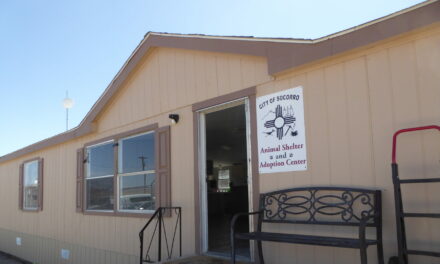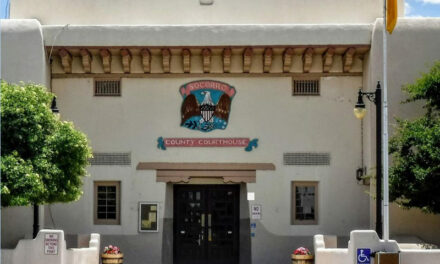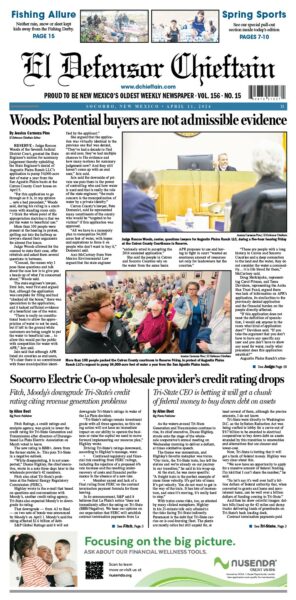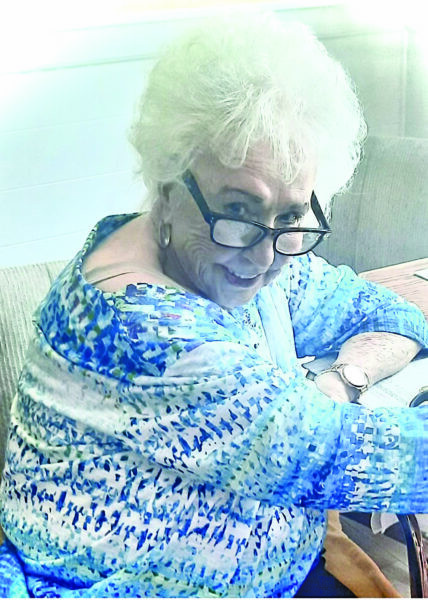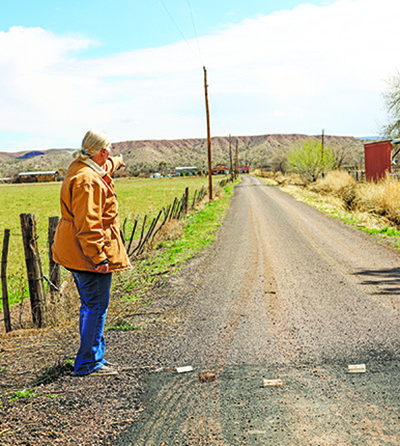To help kick off WomenFest activities at New Mexico Tech this weekend, the Association of University Women Socorro Chapters, in collaboration with the Performing Arts Series, are hosting a panel of New Mexico women who work in climate change science.
Panelists will discuss the impact of climate change in New Mexico from a variety of perspectives, from 1-2:30 p.m. at Macey Center on Friday. A Zoom audience will also be supported. The panel presentation will be followed by a reception in the upper lobby of Macey Center, all free admission.
The four panel participants include:
Caiti Steele, coordinator of the USDA Southwest Climate Hub, is responsible for stakeholder outreach and regional and national partnerships. She is interested in how climate adaptation priorities vary across the Southwest region and how socio-economic factors affect the adaptive capacity of farmers and ranchers.
Phoebe Suina has a deep-rooted understanding, respect for and love of water, which drives her work in the stewardship of water. She is founder and owner of High Water Mark, LLC, which works with New Mexico communities, tribes, and pueblos on a variety of issues and initiatives from environmental policy, land acquisition, planning, infrastructure, and how governmental policies, laws and priorities affect Tribal communities. Suina has over 20 years of experience providing technical, regulatory, and project management expertise to construct and implement utility projects, hazard mitigation projects, flood mitigation, environmental remediation initiatives, and emergency and disaster recovery projects. With this background of “tradition plus science,” she has successfully managed multi-million dollar infrastructure projects and initiatives for Los Alamos National Laboratory, Pueblo communities, and N.M. cities and towns.
Stephanie Moraga-McHaley is the program manager of the New Mexico Environmental Public Health Tracking Program in the New Mexico Department of Health, Epidemiology and Response. She is a co-author on the Climate Change and Heat-Related Morbidity in New Mexico in 2030 NMDOH Epidemiology Report, which predicts a doubling of heat-related emergency department visits and hospitalizations in the next decade.
Crystal Tulley-Cordova (Diné) is a Principal Hydrologist in the Navajo Nation Department of Water Resources – Water Management Branch and has worked collaboratively with Navajo Nation partners on water-related research since 2013. Her work pre-pandemic focused on protecting and managing water resources in the Navajo Nation. Since the start of the pandemic, her work has shifted to providing access to safe water for Navajo residents. Her research interests include learning more about the Navajo Nation water budget, namely the interactions of precipitation, surface, and ground waters, and the nexus with Navajo communities.
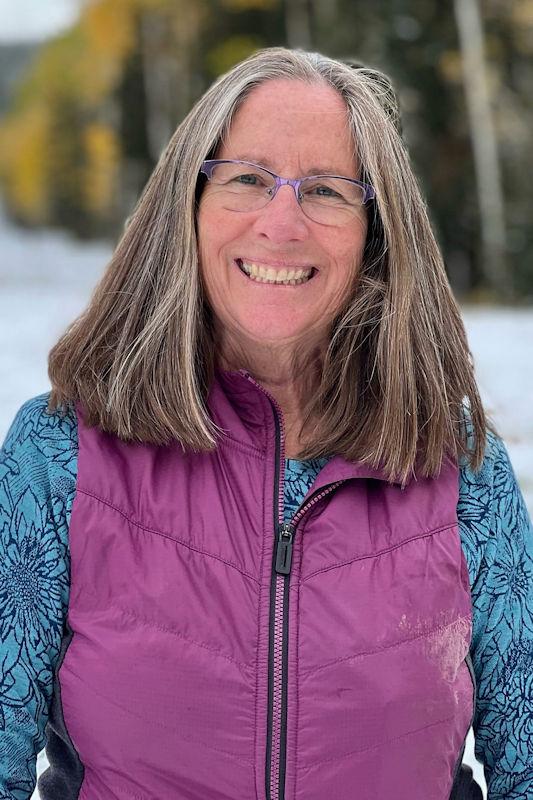
Amy Lewis, HydroAnalytics LLC
Amy Lewis is an independent consultant hydrologist and water resource planner. She received her MS degree from New Mexico Tech and has more than 37 years of experience conducting hydrological and water resource investigations. Her experience working at the New Mexico State Environment Department, Office of the State Engineer and City of Santa Fe gives her a strong background in water quality and water rights issues. She is currently working with the Interstate Stream Commission on evaluating the resilience of public water systems and irrigated agriculture to pending climate changes for the state’s 50-Year Water Plan.
“The Interstate Stream Commission put together this climate panel of eight scientists headed by Nelia Dunbar at the Bureau of Geology and Mineral Resources,” Lewis said in an interview with the Chieftain. “My work has been more focused on what we do about that? What are we going to do to reduce our vulnerability; increase our resilience? The Interstate Stream Commission has hired me to work on that.”
Lewis said climate change is going to cause several things.
“Temperatures in 50 years will be five to seven degrees warmer in New Mexico and an increase in temperature goes along with aridity,” she said. It’s going to reduce the flow in our streams by about 25 percent. Evaporation from open water bodies will be greater. And also the crops are going to need 30 to 40 percent more when it’s five degrees warmer.”
She points out that “if you’ve got a diverse supply, groundwater and surface water, then you’re less vulnerable. On the other hand, if you’re only relying on a stream that might go dry, or only relying on the aquifer that you may be de-watering because you’re pumping it too hard you will be more vulnerable.”
Lewis points out that some public water systems don’t even charge customers.
“There’s no awareness of limitations,” she said. “And they don’t have funds because they’re not billing their customers. One hundred forty-seven out of 604 public water systems in the state have only one well. And half of them don’t have a backup supply, so there’s a lot that can be done to improve the infrastructures.
“With climate changes adding so much more stress, we need to understand resources better than we do,” Lewis said.
She believes the panel on Friday could help young people get ideas on what they could do to work on climate change as a profession.
“I think it’s great they’re having this forum, to give young people an idea that there are other professions out there,” Lewis said.
The panel discussion – Voices of Women – Our Climate, Our Community – is co-sponsored by the Socorro branch of AAUW, New Mexico Tech Performing Arts Series, New Mexico Bureau of Geology and Mineral Resources, Society for Women Engineers NMT Club, and the Tech AAUW Club.
This event will be held both in-person and on Zoom. If you want to attend on ZOOM, you must register for the event in advance to receive the zoom link information: https://tinyurl.com/VOWClimate.
Moderating the panel will be Kristin Pearthree of the New Mexico Bureau of Geology and Mineral Resources.



